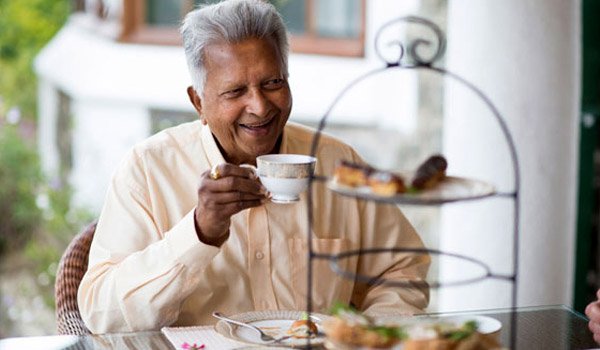“We enter this world with nothing and we exit this world with nothing. The wealth that some of us acquire is with the help of many others. Let’s share some of that wealth in making others happy,”. This is Merril J. Fernando’s creed and philosophy for living a good life.
The 85 year old businessman, entrepreneur and philanthropist, has just been bestowed with yet another accolade, that of being one of five honorees at the 2015 Business for Peace awards of the Oslo based Business for Peace Foundation.
Founded on passion and a thirst for excellence, Merril J. Fernando and quality are synonymous.
His legacy
The MJF Kids programme manages 6 centers across Sri Lanka in Moratuwa, Peliyagoda, Pallansena, Uda Walawe, Point Pedro and Siyambalanduwa where over 1,100 kids have daily educational and vocational training programmes. The Center has produced outstanding results through specialised coaching for O/L students. Of the 7 students who sat for O/Ls at the Point Pedro Center, 5 of them received 7 As.
The MJF Scholarship programme currently has 283 scholars with 153 of them in universities and 130 of them sitting for their A/Ls. The scholarship programme produced 2 doctors, one being a tea plucker’s son. The very first in the 130+ year history. The programme has also produced 2 lawyers and an engineer.
The 95 Child Development Centers across the plantations cater to more than 2,000 students with a daily midday meal, recreation and education. Over 10,000 students in the East receive school uniforms and shoes annually.
The Small Entrepreneur Programme - SEP has benefitted more than 1,200 families with the breadwinner having a steady income. Out of the 1,204 Small Entrepreneur Programmes granted, 531 of them are war widows who are now supporting their families with an income generated through the Programme. The Programme also supports prisoners on parole with dignified employment. More recently over 35 rehabilitated LTTE cadres have been supported to restart their lives and reintegrated to society.
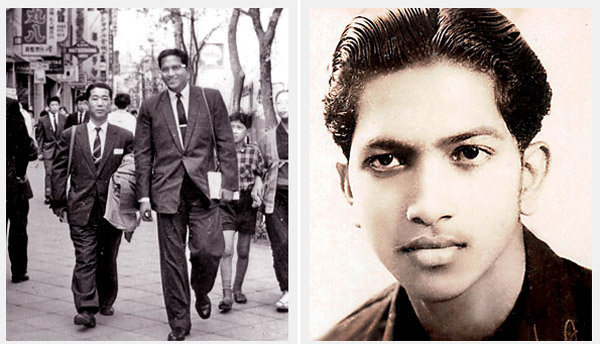
Dilmah has emerged as an international brand and its Founder the recipient of the 2015 Business for Peace Award. What is your recipe for success?
In brief it is integrity, quality and total commitment to what I do.
You are a champion of branding and packaging tea at origin. Has "Single Origin Tea" been the key to your success?
I launched Dilmah at a time when tea from being a classic, much loved, country identified tea - 95 % of countries knew and loved Ceylon tea, but that changed when the tea trade moved from family companies to big traders. At that time tea became a cheap, discounted commodity and tea lost its integrity and quality. Dilmah brought back integrity and quality to tea. Consumers around the world had been accustomed to drinking Ceylon tea, so the success of Dilmah lies in the fact that we brought back real fine Ceylon tea to the consumer. I called it single origin tea to demonstrate the fact that it came from a single source and therefore had integrity. It was not a mixture of tea from many countries.
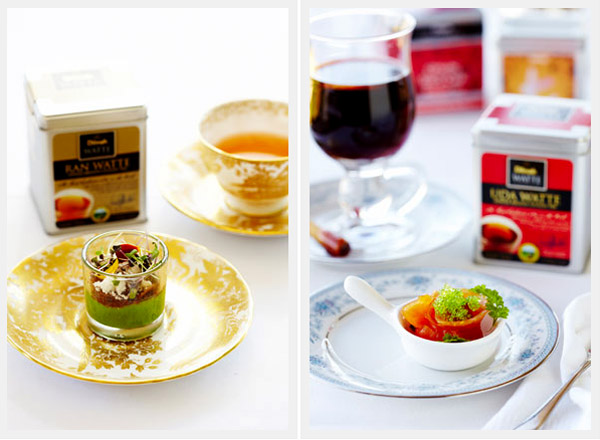
What made you want to join the tea industry – the then domain of British expatriates?
When I was a schoolboy I used to spend my school holidays on friends' estates. I liked the style of life on the plantations, I admired the diligence and hard work of the plantation workers, mind you this was the pattern 50 years ago, it is not the case now, so therefore that culture inspired me to join the tea industry and that was how it happened.
How did you come to be selected to join the first batch of Ceylonese to be trained in tea at what was then the ‘Mecca’ of tea – Mincing Lane, London?
I really can't explain that. The boys selected were children from well-known Colombo families. I came from a village, but it so happened that the rector of my school – father D.J. Nicholas Perera, happened to know the Tea Commissioner very well and he recommended me highly and I was selected as a trainee, so it was providence that helped me.
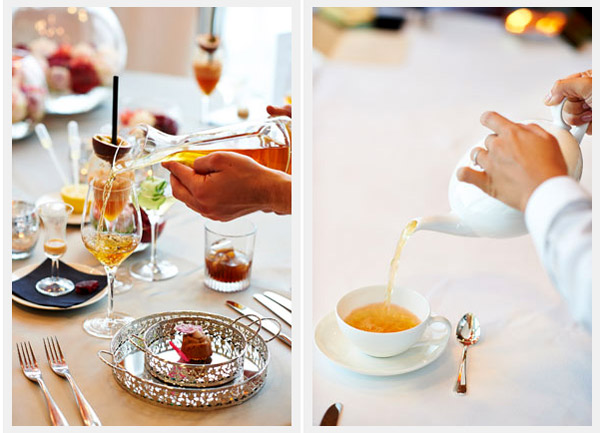
You founded Dilmah in 1974 – what was your investment?
It was about Rs. 5 million which was my whole fortune. I had earned it by selling bulk tea as a raw material to blenders and packers around the world. Fortunately I didn’t have to borrow because I was very careful in storing all my earnings by living very frugally.
In 1985 you convinced Australian supermarket chain Coles to stock your tea, how did you manage to pull that off?
Australians, new Zealanders, the British loved and enjoyed Ceylon tea. That was the only tea they knew. With the commoditization of tea, when tea fell into the hands of traders, they in their inimitable manner commoditized it so that it just became tea. Not Ceylon, or Darjeeling or Assam, but just tea. They put any tea into their packs and marketed it. Previously all packs had to state the country of origin, but big traders prevailed on governments to do away with this. Also commoditization brings heavy discounting because big traders do not respect quality. They market their brands using expensive celebrities and the brand name becomes the focus and the image of quality. It took me two years to convince my buyers that there was no substitute for quality, and after two years of negotiations I managed to get two Dilmah brands into Coles. Then as usual the big brands discounted their prices well below that of Dilmah’s. I was very upset. However I was told that Coles had got numerous letters from buyers thanking Coles for brining back Ceylon tea to the market. I was overjoyed, and from thereon I was able to market Dilmah tea into various markets.
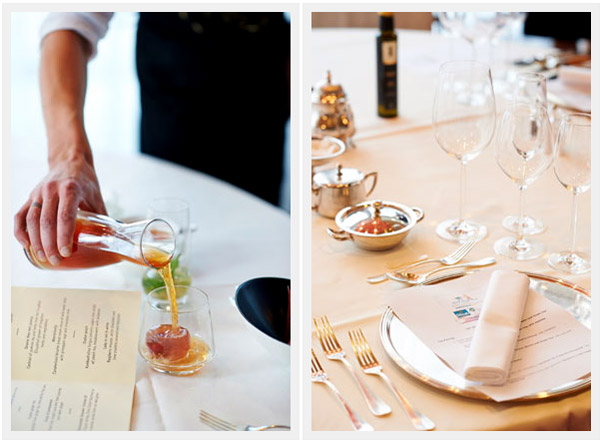
Today Dilmah is the only vertically integrated tea company with its own tea gardens – some of Ceylon’s best estates – and state of the art printing and packaging facilities, tea packing and investments in every segment of the industry. Why is it that other companies haven’t emulated your success?
I had a love for tea, starting with the plantation workers and that love grew into a commitment, and untiring perseverance. I was determined in my mission to market Ceylon tea which was the best in the world. I would still have been just another trader if I had not made my business exceptional in every respect. As I made money I invested and reinvested in the industry. Dilmah was the first brand ever in the whole world of tea or coffee to strike at the root of the colonial trading culture. Their practice was to get their colonies to produce the raw material. They take it away, add value, package, brand it and then sell it at huge profits - that is where the money is. I realized that all our workers did was to enrich hundreds of workers around the world while they remained poor. Whenever possible I acquired land, I established a printing and packaging unit which is one of the best in the Asia Pacific region. I have a substantial stake in every section of the industry. I grow my tea, I add value at the source, it is fully packaged and taken to the market; a product ready for the shelf. So I was the producer, the middleman, marketer, brand owner and owner of the first ethically produced tea. Ethically produced tea is far beyond fair trade if trade can be fair in any form. I am a serious critic of fair trade. For any trade to be fair the producer must market, value add and get the benefits back into his country. At Dilmah all the value additions come back to the country of origin and the promise I made to Australia – I bring you single origin tea, quality, integirity, holds firm. My philosophy of caring and sharing results in all the profits coming back to the country. I share it with my workers, the poor and the Foundation. We are changing about 10 – 15000 lives a year, but we do it silently. That is fair trade where the proceeds come back to the country of origin.
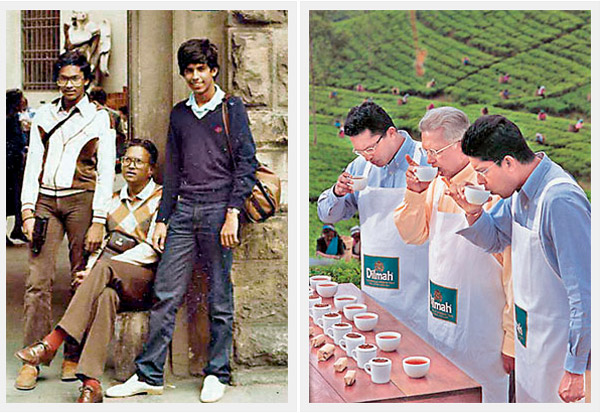
When Dilmah tea was launched by you, it was an ethically produced tea in the world, long before corporate social responsibility became a buzz work. How did you manage to do that?
When I launched Dilmah there was neither appreciation nor recognition of ethics in the tea trade with the emphasis being purely on Friedman’s mantra “the social responsibility of business is to make money. I recognised the need to integrate ethics into business. It was not the result of any prevailing trend or notion other than the genuine family values on which Dilmah is established. These are crystallised in the six pillars of Dilmah – integrity, tradition, quality, our customer, ethics, sustainability. This is the reason the MJF Charitable Foundation was established and the humanitarian assistance that we render in the course of doing business, extended also to the environment. The necessity to be ethical was born out of a sincere belief in the importance of caring for those less privileged in our community and sharing with them rather than from the more recent marketing perspective. The MJF Foundation was established to ensure that the funding derived from the sales of Dilmah, generated for that purpose, were delivered in the most effective and efficient manner, with control retained within our team in preference to the easier option of donating to others, in order to ensure that assistance respected dignity and sustainability, making success most likely.

How many staff do you now have?
At the Dilmah facility we have 1200.
How many countries do you export to?
Over 100.
How many flavours of tea do you have?
We have over 300 types of tea and 3700 different presentations of tea. I always said tea has to be drunk pure, not all these flavours, but I had to move with the times.
Is it true that Dilmah is one of the priciest single origin teas in the world?
Yes it is the most expensive global brand. There are speciality teas that are more expensive, but as a global brand Dilmah is the most expensive.

The tea industry is extremely competitive. Can "Single Origin Tea" continue to be a viable proposition for Dilmah or will you eventually need to consider foreign blends?
The tea category globally is very competitive to an extent where that competition has had a corrosive impact on quality. Single Origin tea is the basis for quality and it is a viable proposition as consumers desire quality but lack the choice of a garden fresh, unblended, high quality tea that is Single Origin, Single Region or Single Estate and therefore genuinely offers the luxury of nature induced diversity in taste etc. We do offer teas from around the world with specific terroirs – Darjeeling for instance – only grown in that region, the same in the case of Assam. Whilst the proportion of non-Ceylon teas in Dilmah is negligible currently, it may well grow although we will never blend tea in the conventional sense, combining tea of different origins in order to achieve a cost target. Quality is the defining aspect of Dilmah and it will continue to be so.
Is Ceylon tea still the finest in the world - or have new and better producers emerged over the past 200 years?

Overall as an origin, Ceylon tea is by far the best and we are the only country that produces tea according to the traditional orthodox methods. It is still the best except for speciality teas like Darjeeling and Assam.
Have you considered producing (or sourcing), branding and packaging coffee under the Dilmah brand name?
Dilmah is only a tea brand. The Russians asked me to market their coffee and a pasta brand under the Dilmah name but I refused. They couldn’t understand it!
How are the ongoing conflicts in the Middle East, Russia and Ukraine affecting Dilmah and the Sri Lankan tea industry?
We are being affected, tea prices are low now. Russia, Ukraine, the CIS countries are affected. Not just due to the conflicts but because of the state of the rubble. This is impacting us.
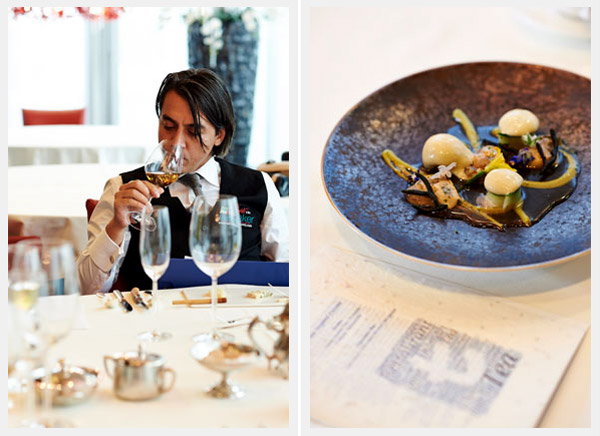
How do we overcome the current challenges - low productivity of old lands, increasing costs of production and stringent labour regulations - facing the tea industry?
We can overcome the challenges that the Sri Lankan tea industry faces currently in relation to depleted soils, increasing cost of production etc., through a combination of technological and managerial improvements that will enhance productivity but importantly also through a focus on quality. As consumers learn more about tea and demand teas of better quality, we are moving in the direction of quality after decades of commoditisation. Sri Lanka is uniquely blessed with the ability to offer high quality teas in unmatched variety and there lies the solution to many of the issues we face today. It will not be an easy ride as it requires the industry to subscribe to this mindset and work on allied aspects of sustainability, ethics and other aspects relating to nature, people and product that are essential components in offering quality Ceylon tea. If that direction can be achieved, Sri Lanka is considerably better placed than any other tea grower to re-establish the image of Ceylon tea and be at the leading edge of the trend towards quality in tea.
To what extent has climate change affected the tea industry and how is the industry?
Badly. 15 - 20 years ago the monsoons were regular and according to pattern. Today it's all topsy turvy and we are affected very badly. The fact that we have high, mid and low grown tea is an asset, but it is having a serious affect on the tea crop and can only get worse.
What made you set up the MJF Foundation?
I came from a very humble family. My mother showed her way of caring for the poor and sharing with her neighbour right throughout our lives. That dug deep into me and when I started working I used to spend even Rs.10 on the poor. When I started my own business I emulated my mother. I had only 18 staff when I started my business but all their children’s text books, pencils, pens, and 3 sets of clothes and shoes were provided. Today I have 1200 staff and all their children are provided for. I also give scholarships. The results of this were stunning to me and as my business extended in 2007 I incorporated the MJF Foundation. I pursued my mother's wishes and this has given me the most amount of satisfaction. I believe that success in business should make this world for both humans and nature a better place. Today my plantation scholarships – children of tea pluckers have passed out as doctors – last September to be precise. The good Lord gives me and it is my duty to share that.
How does your family inspire you?
I have two wonderful children both brilliant in their spheres and both good human beings. One does tea with me, the other is developing a whole new industry – the leisure industry. We have two of the country's top luxury villas as hotels – that’s Malik. They both inspire me in different ways. As for Dilhan he is redefining tea and rediscovering tea. He has established some unique events in the tea industry. Dilmah Real High Tea is one of them. It’s a global event where in 18 countries 18 top chefs participate to create 7 unique dishes using tea, and it is culinary art. My children amaze me. I gave them a good education, something I didn’t have and they are carving their own place in the tea industry. I was their father and mother. They are my greatest assets and I know they will take our businesses as well as charitable efforts far beyond what I have done.
What’s the happiest or proudest moment in your life?
That was when I celebrated my 25th anniversary – 25 years after I launched Dilmah tea in Australia at the Sydney Opera House on 19th June 2013.
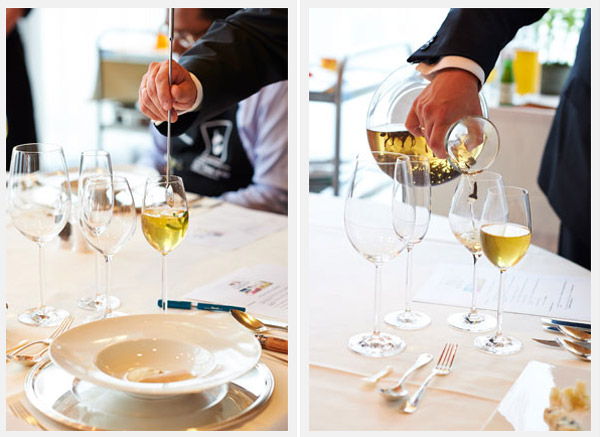
What’s the best compliment you ever received?
My recent award in Oslo.
What advice did your parents give you that you best remember?
My parents made me understand that wealth, money and profit are meaningless unless you share it with others and with the poor. My mother, even if she got some chocolates, would portion it out, wrap it in pieces of paper and distribute it around. That spirit of giving was something that was always prevalent.
What’s your most cherished family tradition?
Sunday lunch.
Who were your heroes or role models when you were a child?
My eldest sister. Her husband was ill, but she ran his whole business, the household very well. She shared what she had with the whole village. She would give away parcels of land to people, 10 perches for people to build their own homes, etc. When she died the whole village turned out. This was Agnes my eldest sister.
How do you like to relax?
Listening to music, playing with my grandchildren.
 Do you have any pets – are you a cat or dog person?
Do you have any pets – are you a cat or dog person?
Dogs. I love dogs.
If a young person asked your advice for living a good life, what would you say?
This a question I am often asked – the New York Times asked me this; have a clean mind, a warm heart and integrity. You will never go wrong. If your success and achievements go to your head, you are finished.
Interviewed by Anusha David
(life.lk)




